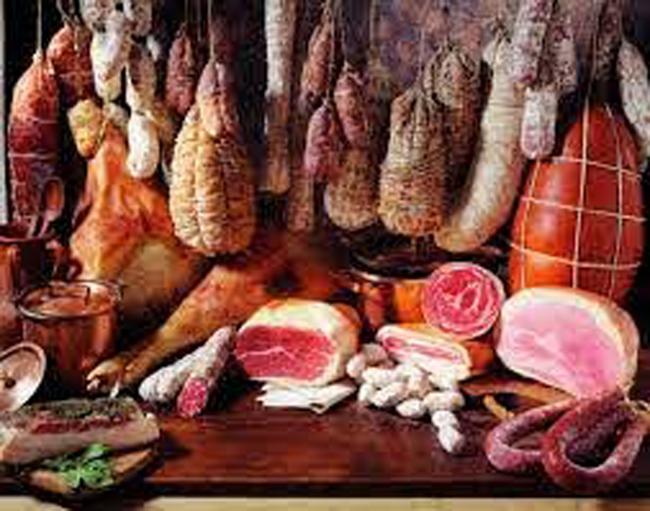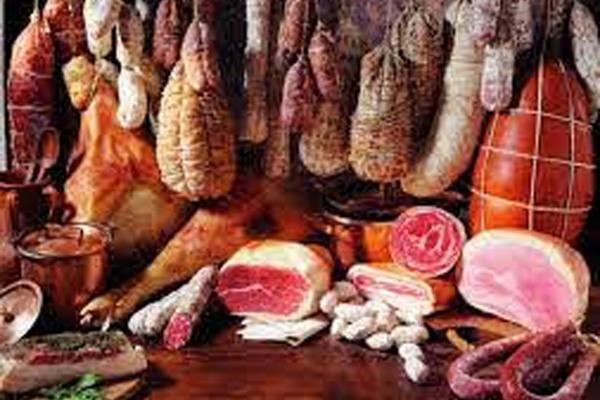Salumi Liberi

The goal of the project is to limit use of nitrates and nitrites in salumeria products (salame crudo e prosciutto cotto) and to find where and if possible a complete elimination of them in compliance with the criteria of hygiene and food safety. In the microbiological field, it was decided to use both commercial cultures and cultures deposited in the DISAFA and IZS collections capable of producing natural antimicrobials. About the use of antioxidants, with action on the lipid fraction, the project aims at the formulation of mixtures with no inhibiting action towards the microbial cultures.
Reduction of nitrates / nitrites in salumeria products (salame crudo e prosciutto cotto): bibliographic research Reduction of nitrates / nitrites in salami: microbiological approaches; antimicrobial ingredients and alternative antioxidants. Nitrite reduction in cooked ham: impact on the hygienic-sanitary characteristics and on the shelf life of the product - microbiological considerations. Nitrite reduction in cooked ham: new ingredients in their replacement. Analytical determinations on the chemical-physical characteristics in salami and cooked ham with low content of nitrates / nitrites. Sensory analysis of the new meat products obtained.
Food quality and safety are two interrelated and essential parameters, they are of particular importance in the case of fermented and / or processed food products. In this context, meat and charcuterie products are currently subject to critical issues related to the recent declarations of the IARC (the International Agency for Research on Cancer). The IARC defined red meat as ""probably carcinogenic"" (class 2A) and processed red meat (sausages and cured meats) as ""definitely carcinogenic"" (class 1). The delicatessen products, together with other products of animal origin, represent a fundamental sector for the Piedmont Region (and in particular for the Province of Cuneo). The enhancement of brands and the defense of their quality through the application of technologies already consolidated at a scientific and academic level - but not yet exploited in current production - would be a sure driving force for the related agri-food sector, positively impacting at the level of the supply chain. (from field to table) and integrating the actors of the same into a technological platform (farmers, breeders, Bodies in charge of controls, Academy and trainers, distributors and final consumers).
Having therefore made these premises, it is clear that the production of seasoned cured meats seeks microbiological stability and health safety and that the control of pathogens is based on very delicate balances, so that the reduction or elimination of nitrites and nitrates must be prudent and based on scientifically proven.
The expected result is to be able to achieve a controlled limitation of the use of nitrates and nitrites in sausage products (raw salami of pure pig and/or sheep and goat) and to assess where and if possible a complete elimination through microbiological approaches and alternative antioxidants.
The project aims to bring attention to cooked ham because it is a widespread product appreciated by the consumer, often present in infant food and in the diet of hospitalized people for the convenience of use. The research intends to develop an innovative product while maintaining the organoleptic characteristics and replacing the nitrites with new ingredients.
Documentazione dell'evento finale del GO Salumi Liberi
I Gruppi Operativi, Mercato e sicurezza alimentare, Piemonte, PEI-AGRI| Titolo/Descrizione | Url | Tipologia |
|---|---|---|
|
Pagina web sul sito del capofila
|
Link ad altri siti che ospitano informazioni del progetto
|
|
|
Relazione sintetica sui risultati del progetto
|
Materiali utili
|
|
|
REVIEW DISAFA E ISTITUTO ZOOPROFILATTICO TORINO
|
Materiali utili
|
|
|
REVIEW CAMERA COMMERCIO DI TORINO E UNIVERSITA' PIEMONTE ORIENTALE
|
Materiali utili
|
|
|
Poster salame crudo
|
Materiali utili
|
